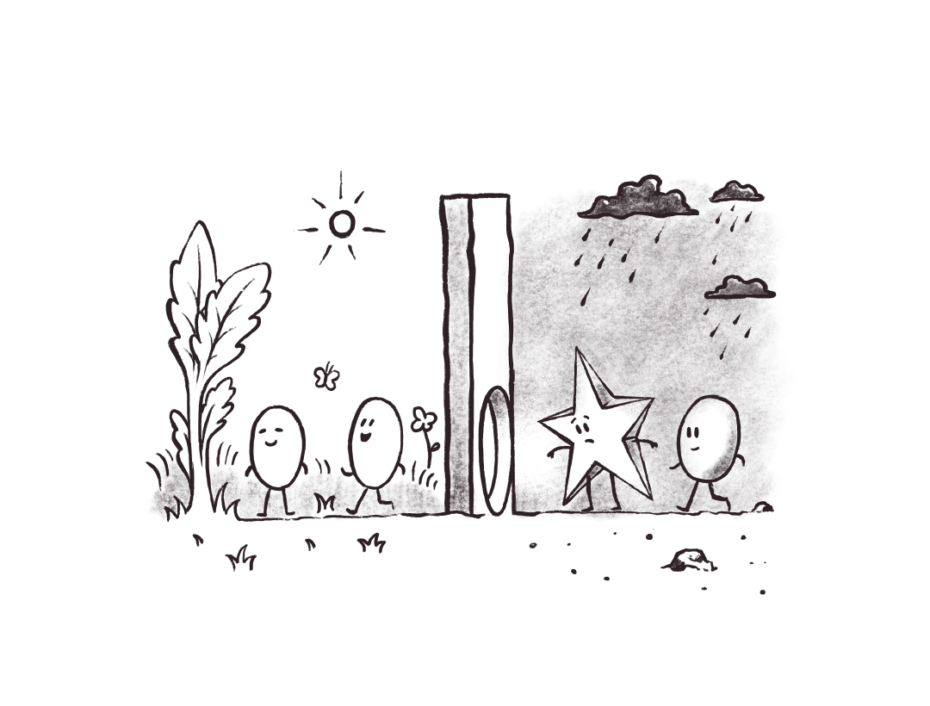What causes suicide — Situational distress

Suicide can be caused by a lot of different factors.
Our communities experience different forms of systemic and social discrimination, prejudices and stigma depending on our identities and our lived experiences. It is important to acknowledge that thoughts and feelings of suicide are predominantly associated with distress from everyday or specific situations. We may be experiencing harm, injustices or just trying to survive day-to-day. Sometimes we face challenges that are out of our control, however you are never alone and often the challenges and factors are experienced by many people in our communities.
This page on situational distress factors provides information on stigma, discrimination and harm in relation to our different identities and life experiences. Here you can find resources on community support, links to connect to peers with similar experiences, and to services that offer practical support to navigate complex systems, such as medical or government services.
We will continue to add more useful resources, and we would love to hear from you if you have recommendations via our feedback form.
Distress from stigma and discrimination experienced by trans and gender diverse people
Trans and gender diverse people are an incredibly resilient, gender euphoric population, who are unfortunately disproportionately impacted by suicide compared to the general Australian population.
Trans people face violence and stigma on systemic, social and cultural levels — wherever cisgenderism and transphobia persist. Transphobia can be experienced as hostility, stigmatising language and assumptions, physical and verbal violence, micro aggressions, being pathologised as inherently unwell and misgendered throughout daily life.
Cisgenderism (sometimes referred to as cisnormativity and cissexism) is a structural stigma that denies, ignores, and pathologises the trans experience and trans people of all genders. Cisgenderism positions expansive expressions of gender as a problem, ignores the validity of non-binary genders and seeks to enforce traditional gender roles and inequalities.
We know that barriers to social, medical and legal gender affirmation can be significant drivers of distress and suicide among trans populations. We also acknowledge that those living across different intersections, such as Sistergirls and Brotherboys, trans mob, trans people of colour, and those with disabilities may be impacted even more by suicide.
When accessing services, trans people are often met with discriminatory policies and processes, which can lead to further traumatisation and prevent them from seeking out care and support.
Constantly hearing about the suicide statistics for trans people and knowing many people who have lived experience of suicide can feel like a big burden. There is support available though.
Peer-led support services and platforms can help trans people reduce the feelings of being overwhelmed or feeling isolated. Knowing where to access affirming support can help you be better resourced and confident in helping others in the trans community. You don’t have to go through any of the distress alone.
Sexuality and heteronormativity
Our sexuality can be a great source of pride and joy, but there can be resistance to embracing our sexual orientation from family, cultural and religious groups, and even from within ourselves.
We live in a world that places more value on heterosexual relationships and milestones. When heterosexuality is assumed and considered the norm, our identities and life plans can feel erased.
Finding acceptance and celebrating your sexuality is a deeply rewarding journey, whether you invite people in, or not. You can find services here that will help you on your way.
Distress from experiences of stigma, discrimination and harm for people living with disability
LGBTQ+ people living with disability experience high levels of social prejudices, discrimination, and structural oppression. Ableism is pervasive and can look like a lack of accessibility or appropriate accommodations in health, legal and public transport systems, building designs or even deliberate attitudes. It can also be colloquial expressions littered throughout language.
Getting support to use the NDIS, support for advocacy and navigating community spaces and disability services can help reduce the stress of everyday ableism.
Distress from racism and discrimination for LGBTQ+ people from culturally, linguistically and ethnically diverse, migrant, and refugee backgrounds, and LGBTQ people of colour
LGBTQ+ people from culturally, linguistically and ethnically diverse, migrant, and refugee backgrounds, and LGBTQ+ people of colour are exceptionally resilient, but often navigate spaces that struggle to embrace the complexities of their cultural or lived experiences.
Racism, or a lack of understanding of cultural diversity in LGBTQ+ spaces, also occurs, especially on dating apps.
You may feel excluded from LGBTQ+ spaces and communities, but may also struggle to be fully accepted by families or cultural communities of origin, because of your sexuality and/or gender.
This is especially important because connection to peers and the LGBTQ+ community is associated to greater health outcomes, and also helps us to access services.
Inequity is compounded for LGBTQ+ women (cis and trans), non-binary people and trans men from culturally, linguistically and ethnically diverse, refugee and migrant backgrounds, and LGBTQ+ people of colour.
Stigma, discrimination and false assumptions made by health professionals based on sexuality and gender can also lead to poorer health outcomes. Health systems often ignore the role of racism as a significant determinant of health.
Distress from racism and discrimination for First Nations LGBTQ+ people
Aboriginal and Torres Strait Islander history is a 60,000+ year story of resilience and survival. Unfortunately, racism is an endemic problem in Australia, and it disproportionately impacts First Nations Peoples. The racism and discrimination First Nations peoples face today is directly attributable to a legacy of discriminatory policies and practices – including dispossession, the forced removal of children, forced servitude, massacres and segregation. These policies and practices provided the basis for the racial prejudices and stereotypes that currently operate across our justice, health, political, economic and social systems.
This means LGBTQ+ Aboriginal and Torres Strait Islander people, particularly Sistergirls and Brotherboys, experience compounding factors of racism, homophobia and transphobia, which can lead to situational distress.
“Having a lived experience of suicide recognises the effects of ongoing negative historical impacts and/or specific events on the social and emotional wellbeing of Aboriginal and Torres Strait Islander peoples. It encompasses the cultural, spiritual, physical, emotional and mental wellbeing of the individual, family or community”
Aboriginal and Torres Strait Islander Lived Experience Centre – Black Dog Institute
